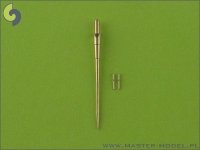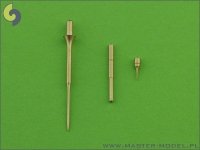Hasegawa CH44 F-4J Phantom II 'VF-84 Jolly Rogers Super Detail' 1/48
Plastikowy model do sklejania. Zestaw nie zawiera kleju i farb.
McDonnell Douglas F-4 Phantom II – dwumiejscowy, naddźwiękowy samolot myśliwsko-bombowy dalekiego zasięgu zdolny do działania w każdych warunkach pogodowych. Został opracowany na zamówienie Marynarki Wojennej Stanów Zjednoczonych przez wytwórnię McDonnell Aircraft Corporation. Phantomy były wykorzystywane przez amerykańskie siły zbrojne od 1960 do 1996 roku służąc jako podstawowy myśliwiec przewagi powietrznej i główny samolot myśliwsko-bombowy USAF, US Navy i US Marine Corps podczas wojny wietnamskiej. W 2001 roku nadal pozostawało w służbie 11 państw ponad 1000 maszyn tego typu, w 2016 roku był wykorzystywany przez pięć państw.
F-4 Phantom II został zaprojektowany jako myśliwiec obrony floty dla amerykańskiej marynarki wojennej i wprowadzony do służby w 1960 roku. W 1963 w jego posiadanie weszły również Siły Powietrzne Stanów Zjednoczonych (USAF), które zaadaptowały go do roli samolotu myśliwsko-bombowego. Do zakończenia produkcji w 1981 roku wytwórnię opuściło 5195 maszyn, co uczyniło z Phantoma najliczniej budowany amerykański naddźwiękowy samolot wojskowy. Do momentu wdrożenia kolejnej maszyny wytwórni McDonnell Douglas myśliwca F-15 Eagle dzierżył on również rekord najdłużej wytwarzanego samolotu myśliwskiego, pozostając w produkcji przez 24 lata. Innowacyjnymi rozwiązaniami zastosowanymi po raz pierwszy w samolotach wojskowych był impulsowy radar dopplerowski i szerokie wykorzystanie tytanu do budowy kadłuba.
Mimo pokaźnych rozmiarów i dużej maksymalnej masy startowej, wynoszącej 27 000 kg, F-4 Phantom II mógł osiągać prędkość maksymalną 2,23 Ma oraz prędkość wznoszenia 210 m/s. Krótko po ich wprowadzeniu do służby, na samolotach F-4 Phantom II ustanowiono 16 rekordów świata włącznie z rekordem prędkości wynoszącym 2585,086 km/h i rekordem pułapu wynoszącym 30 040 m. Pięć z ustanowionych w latach 1959-1962 rekordów prędkości zostało niepobitych aż do 1975.
The McDonnell Douglas F-4 Phantom II[N 1] is a tandem two-seat, twin-engine, all-weather, long-range supersonic jet interceptor and fighter-bomber originally developed for the United States Navy by McDonnell Aircraft.It first entered service in 1961 with the Navy.Proving highly adaptable, it was also adopted by the United States Marine Corps and the United States Air Force, and by the mid-1960s had become a major part of their air arms.
The Phantom is a large fighter with a top speed of over Mach 2.2. It can carry more than 18,000 pounds (8,400 kg) of weapons on nine external hardpoints, including air-to-air missiles, air-to-ground missiles, and various bombs. The F-4, like other interceptors of its time, was initially designed without an internal cannon. Later models incorporated an M61 Vulcan rotary cannon. Beginning in 1959, it set 15 world records for in-flight performance,including an absolute speed record and an absolute altitude record.
The F-4 was used extensively during the Vietnam War. It served as the principal air superiority fighter for the U.S. Air Force, Navy, and Marine Corps and became important in the ground-attack and aerial reconnaissance roles late in the war. During the Vietnam War, one U.S. Air Force pilot, two weapon systems officers (WSOs),one U.S. Navy pilot and one radar intercept officer (RIO) became aces by achieving five aerial kills against enemy fighter aircraft.The F-4 continued to form a major part of U.S. military air power throughout the 1970s and 1980s, being gradually replaced by more modern aircraft such as the F-15 Eagle and F-16 Fighting Falcon in the U.S. Air Force, the F-14 Tomcat in the U.S. Navy, and the F/A-18 Hornet in the U.S. Navy and U.S. Marine Corps.
The F-4 Phantom II remained in use by the U.S. in the reconnaissance and Wild Weasel (Suppression of Enemy Air Defenses) roles in the 1991 Gulf War, finally leaving service in 1996.It was also the only aircraft used by both U.S. flight demonstration teams: the United States Air Force Thunderbirds (F-4E) and the United States Navy Blue Angels (F-4J).The F-4 was also operated by the armed forces of 11 other nations. Israeli Phantoms saw extensive combat in several Arab–Israeli conflicts, while Iran used its large fleet of Phantoms, acquired before the fall of the Shah, in the Iran–Iraq War. Phantom production ran from 1958 to 1981, with a total of 5,195 built, making it the most produced American supersonic military aircraft.As of 2020, 62 years after its first flight, the F-4 remains in service with Iran, Japan, South Korea, Greece, and Turkey. The aircraft has most recently been in service against the Islamic State group in the Middle East.


















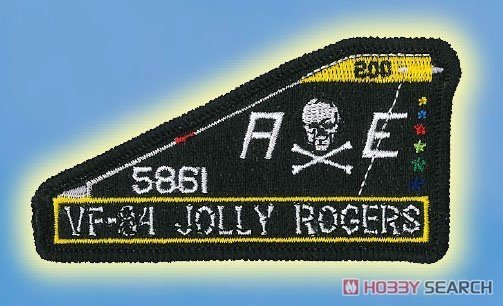
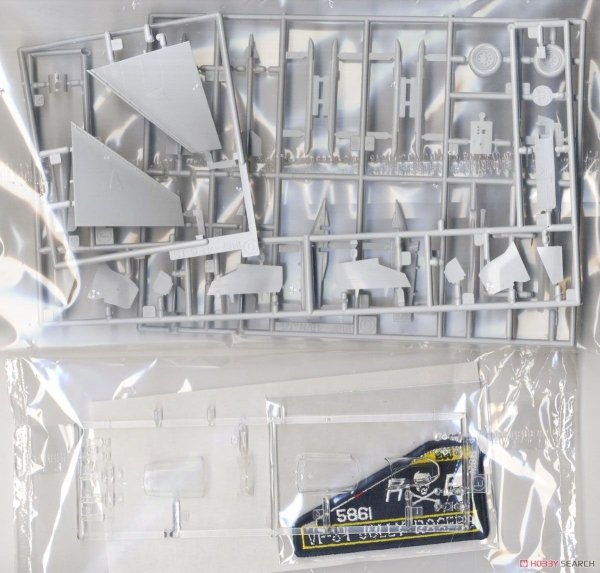
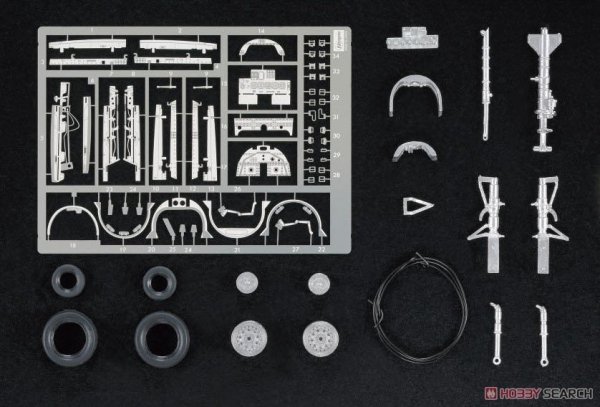

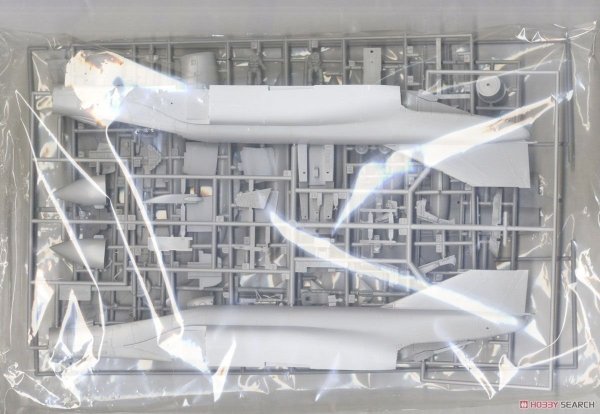
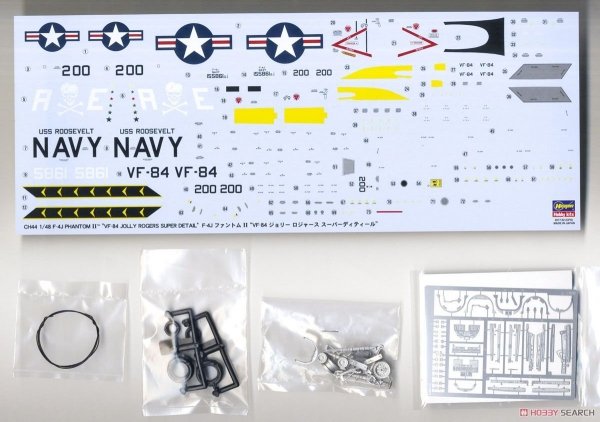
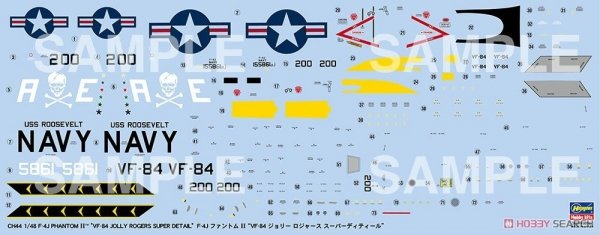
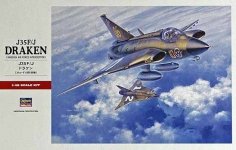
 92 szt.
92 szt.




 1 szt.
1 szt.

